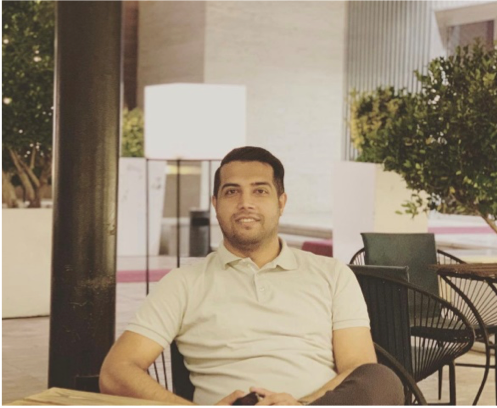 Name:
Name:
Dr. Peiman Azarsa (He/Him)
Educational Background:
PhD in Civil Engineering | Concrete Technology from the University of Victoria, BC, Canada
Research Location:
School of Engineering, UBC Okanagan
Research Supervisor:
Dr. Shahria Alam
Hometown:
Zahedan, Iran
Dr. Peiman Azarsa is a current UBC Okanagan Mitacs postdoctoral fellow working in the School of Engineering. His research focuses on the development of various sustainable concretes for stormwater management systems, the use of which is important for the development of more environmentally friendly construction.
Give a brief introduction to your research:
Rapid urbanization and industrialization are relentlessly challenging the sustainable growth of our society. Consequently, the natural resources of water, land, and vegetation are greatly affected. Climate change is the key cause and has increased the uncertainty, intensity, and frequency of such challenges. The Continuous Defective Separator (CDS) is a swirl concentrator hybrid technology that uses continuous deflective separation – a combination of swirl concentration and indirect screening to screen, separate, and trap debris, sediment, and hydrocarbons from stormwater runoff. The indirect screening capability of the system allows for 100% removal of floatable and neutrally buoyant material debris 2.4mm or larger, without binding. CDS retains all captured pollutants, even at high flow rates, and provides easy access for maintenance. However, due to climate change, the CDS system will be exposed to hydraulic overloading because of overflow during peak hours or high rainfall events. One of the goals of this project is to increase the productivity of the current system by using a new screening system. Additionally, each CDS is made with precast normal-strength concrete that is reinforced with conventional steel bars. Adhering to Canada’s sustainable development goal, the use of new eco-friendly materials such as cement-less concrete is vital. Thus, the compatibility of various green concretes/materials will be evaluated under normal and harsh conditions simulating the in-service conditions that happened in freezing areas. Furthermore, this research plans to develop proper methodologies to address the seismic performance of this new type of concrete experimentally and numerically.
What do you find most exciting about your research area?
Holding a degree in Civil Engineering/Construction Materials Engineering is fantastic. This field gives you opportunities to use autonomous vehicles, develop innovative processes to promote green and sustainable infrastructure, and employ virtual and augmented reality to design human-friendly spaces. Moreover, concrete is one of the most used construction materials around the world. Since it has been used in the construction industry, it powers the constructional evolution. As there is currently no real substitute for concrete, it will remain important to maintain our growth and the quality of life for humanity. However, unfortunately, cement, as one of the main constituents of concrete, has a high environmental cost. Cement production is said to be the third-largest producer of carbon dioxide in the world after transport and energy generation. A lot of research has been performed to develop more sustainable alternatives to cement, which is where real change is needed. By-product materials such as fly ash, slag, and recycled aggregates/materials are some low-carbon alternatives. This would potentially exceed the construction industry goals for carbon reduction, which is an incredibly exciting thought.
Why did you decide to pursue a postdoctoral fellowship at UBC Okanagan?
A postdoctoral fellowship opens doors to newer research opportunities, including independent and collaborative research opportunities. I would like to mention that this program provides me with time to publish more research work due to lower teaching and administrative responsibilities. Additionally, it allows me to revise my project cycle, begin a new project, and gain expertise in various subjects in the construction industry. It has also provided me with opportunities to collaborate with industrial teams working on similar projects.
What do you enjoy most about your postdoctoral fellowship at UBC Okanagan?
The Mitacs postdoctoral program has allowed me to enhance my research experience, become an independent researcher, become known through publishing, and present my results at professional meetings. The most enjoyable part of my postdoctoral is meeting and working with different engineering professionals. My postdoctoral fellowship has connected me to various engineering firms, including most notably Kon Kast Concrete Products Inc. and Contech Engineered Solutions. This allows me to build my soft and technical skills. Moreover, it provides the opportunity to gain increased familiarity with the industrial working environment.
What do you like to do for fun?
It depends on what season we are in. I like to do outdoor activities such as road trips, camping, hiking, and swimming in warm weather. When cold weather arrives, I prefer playing video games, watching movies, and having indoor parties with my friends.
Do you have any advice you’d like to give to future scholars in your area of research?
It is valuable to have a belief about what fields you would like to study, keep an open mind, and learn as much as you can from those who are gracious enough to guide you. Try to take advantage of opportunities to learn a new soft or technical skill, even if it appears unlikely that you’ll get a usable result. Adhering to this, don’t get disappointed if your findings do not match the hypothesis of your research- science does not ‘work’ because you want it to. Every negative result provides a lesson and could ultimately end up in the discovery of a new research direction. There will always be challenges in your research. Often, research can be time-consuming, boring, and repetitive, but keep yourself encouraged by an interest in, and a desire for understanding. This curiosity will maintain your entire research career. So, stay skills-hungry and try to have fun with your research!